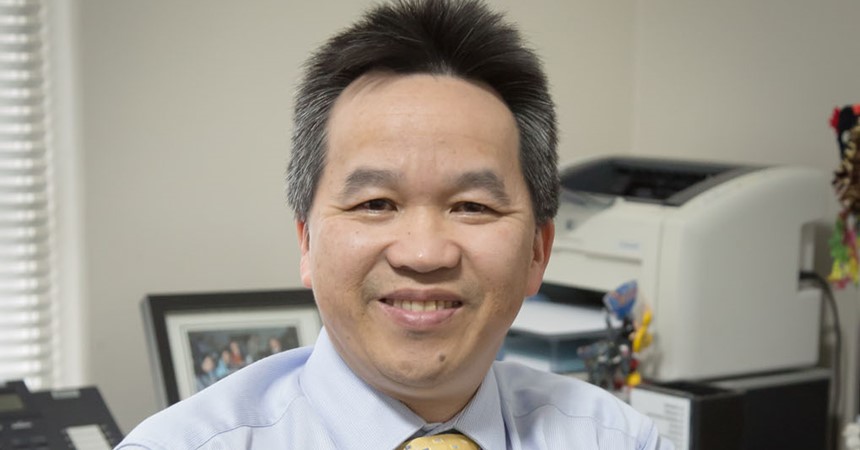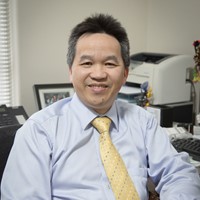After three days and three nights at sea, we finally landed in Malaysia. We were transferred to Paulau Bidong refugee camp. I felt hopeless, uncertain about my future − where would I be and how long would I have to stay here? I was a citizen without a country. I lost my identity. After eight months in the refugee camp, my family was interviewed by an Australian government representative for refugee intake. Finally, we were accepted to migrate to Australia.
On 6 December 1980, I flew into Sydney airport on Qantas and then on to Adelaide where I would settle. I was nervous and lonely because I was facing enormous, challenging problems with no friends, a new culture and a language barrier. However, at least now I had a country where I could belong.
It was a difficult time but I was lucky. I met a lovely Australian host family, Lyn and Robert. Their hearts were full of kindness and caring. They invited my sister, brother and me into their house and treated us as their sons and daughter. This was the place where I learned the Australian way of life. We shared many dinners and Christmases together. I learnt how to play backyard cricket and Aussie football and I learned the names of Australian sport icons Sir Don Bradman, Dennis Lillee, Rodney Marsh, Ian and Greg Chappell. In Australia we love to talk about sport! Our national heroes or heroines usually come from sporting fields, some come from ordinary people who do extraordinary things to make Australia a better place to live in. By contrast, before I came to Australia I only learnt how to live and die like some famous war heroes. Lyn and Robert taught me that Australia had been a peace-loving country, you don’t need to die to be a hero.
I went to Woodville High School. Our class had 30 students and only three had been born in Australia. We learned to respect each other’s differences, religious practices and cultures. We loved to share different types of food and learned each other’s languages. One year, the school organised an international day. We had international food cooking during the day and a concert at night. It was a wonderful thing to see Australian kids learning how to do the Russian dance in traditional Russian sarafan dresses, trying to make spring rolls and eating them with fish sauce. These experiences taught us mutual understanding and tolerance. You cannot understand a person’s culture until you learn to speak the language, eat their food and live their way. This made us realise that Australia is a multicultural society. It doesn’t matter what colour your skin is, where you are from or what is your religion, you have the same equal opportunity to succeed in life. This opportunity was given to me when I passed my Year 12 exam and received an offer to study medicine in Adelaide University.
Recently, some minority organisations are trying to spread fear and hatred in our community. Hatred cannot be used to stop hatred. Only love can stop the hatred. Only love can stop the sorrow, the loneliness, isolation, the feeling of rejection. Love is a guiding light to show others our freedom, equality and peace-loving Australian way of life. Love can bring us closer together and build this beautiful country to be an even better place in harmony, not only for ourselves but for the next generation to come.
I am now a doctor working in Singleton for nearly 20 years. I built a home and raised my family here. It has amazing community spirit. I feel welcome. I have found great friends who show me how to live, how to give, how to care and share the wonderful things in life. I am continuing to look after my community because I am an Australian.























































































